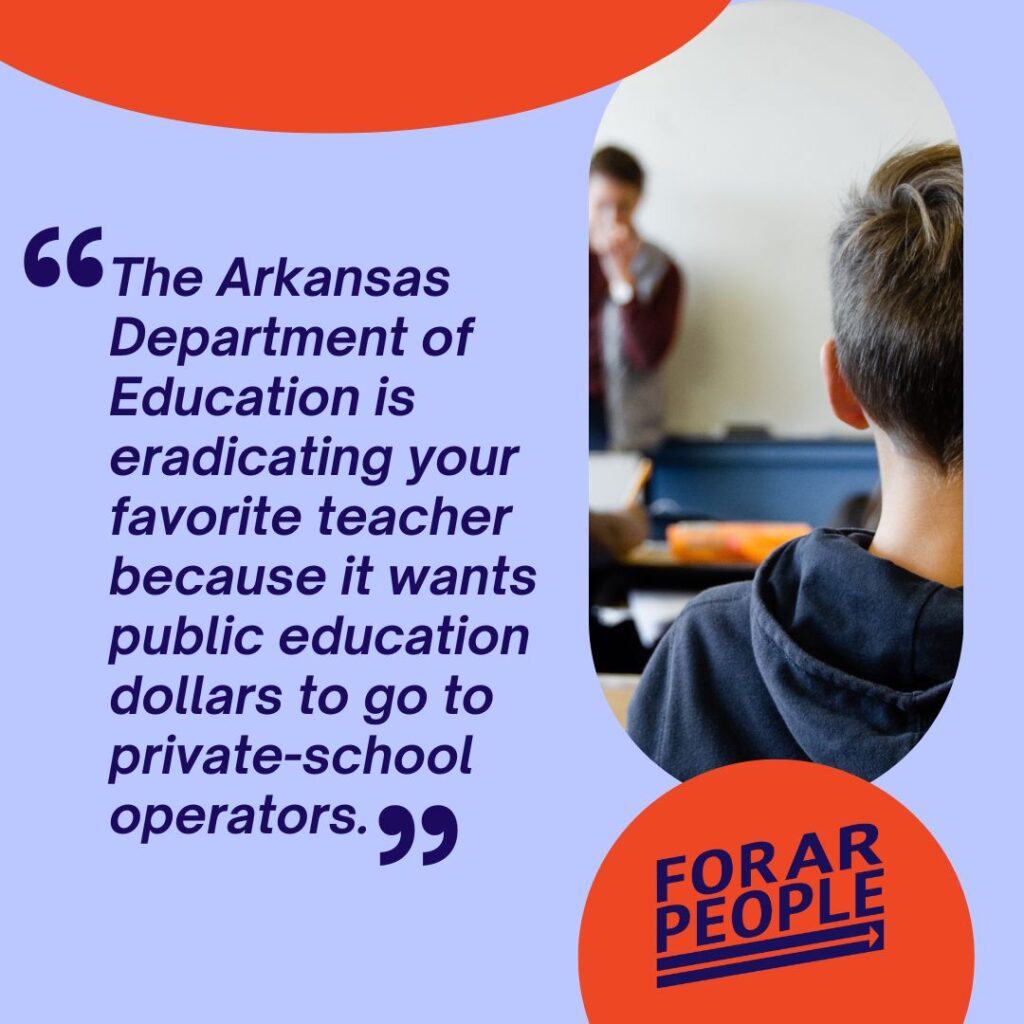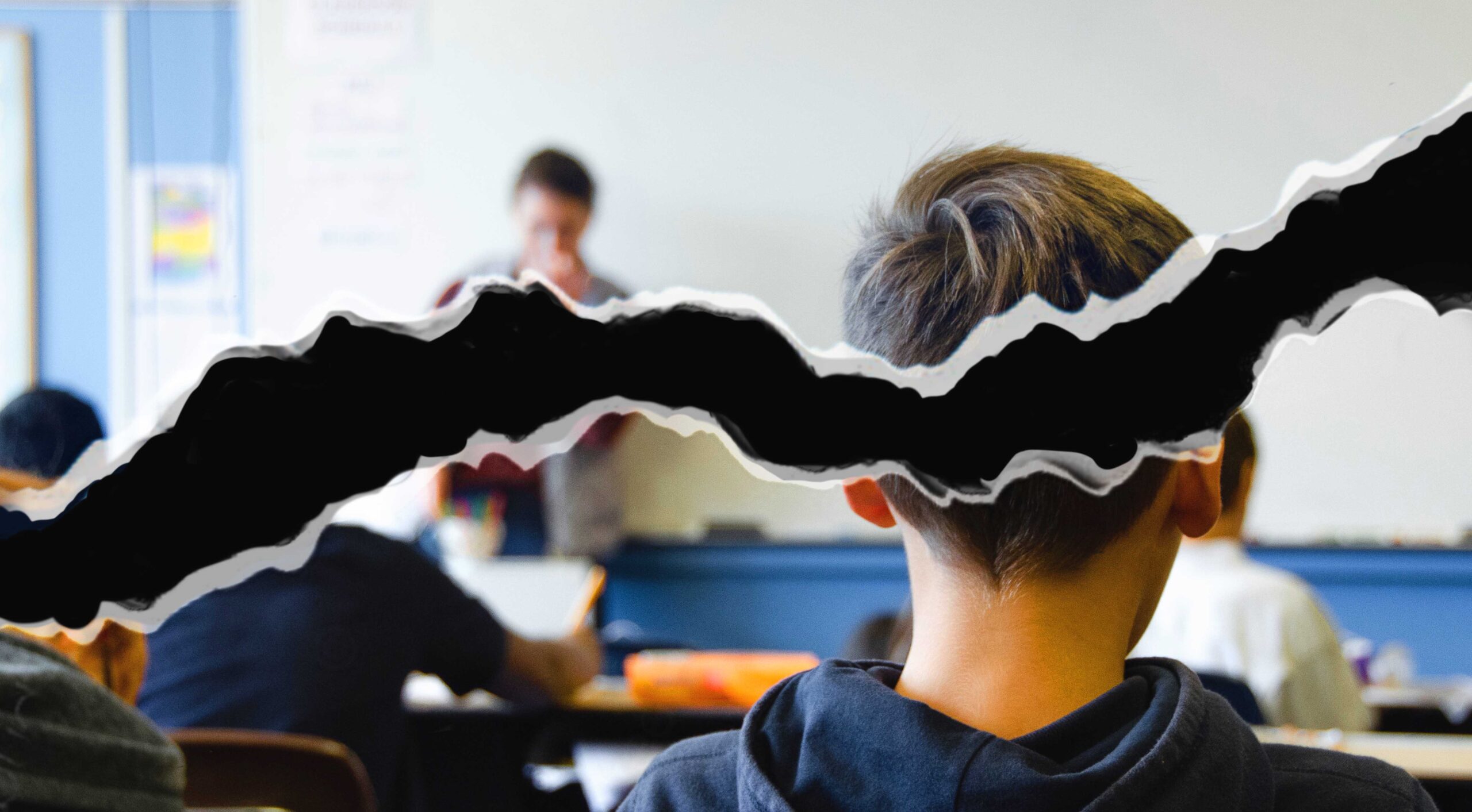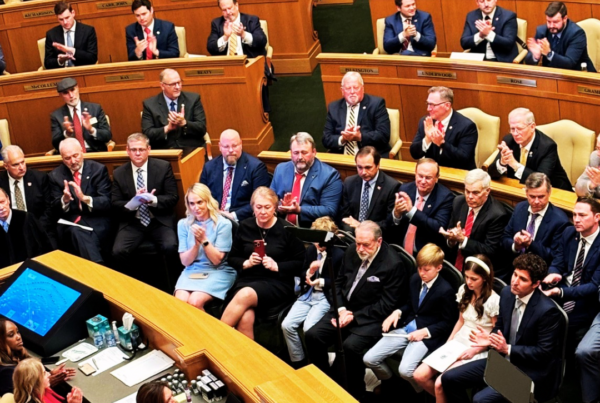The Department of Education is eradicating your favorite teacher because it wants public education dollars to go to private-school operators. The new ADE educator is cold, detached, and has a sterile approach to teaching and learning.
Close your eyes and think about your favorite teacher.
Were they passionate? Warm and caring? Energetic? Knowledgeable about their students?
These are the teachers we remember and the teachers we want our children to have in school. These are the teachers aspiring educators hope to emulate.
However, the Arkansas Department of Education (ADE) doesn’t seem to want teachers to be warm, caring, passionate, or energetic. ADE doesn’t seem to want teachers to be knowledgeable about their students’ unique cultures, languages, skills, or special needs.
All of those traits, which were once used to describe “highly effective” teachers, have now been erased from the Teacher Excellence and Support System (TESS) rubric. ADE wants teachers to churn out identical students, ignoring what makes each child worthy of compassionate, focused attention.
ADE is eradicating your favorite teacher because it wants public education dollars to go to private-school operators.
The TESS rubric describes educators’ professional practices and is used for teacher evaluation, goal-setting, and reflection. It lays out what we think good teaching looks like in the areas of planning, classroom environment, instruction, and professionalism. While the original framework has its fair share of criticisms as an evaluation tool, one of its strengths is that it highlights the complex and professionalized work of teachers.
With the recent changes to the TESS rubric, ADE presents an “ideal teacher” who is nothing like the favorite teachers we knew and loved.
Warm and caring relationships? Replaced with “polite and respectful” relationships.
A culture of learning marked by student energy and teacher passion with a shared belief in the importance of learning? Replaced with a culture of “commitment to the learning goals” and “students [being able to] articulate the steps for progressing in the standard.”
A teacher who “ensures every voice is heard?” Deleted. A teacher who actively seeks knowledge of students’ “cultures, skills, language proficiency, and special needs?” Completely eliminated, along with every mention of student culture, skills, language, and special needs.
Why would a teacher need to care about their students’ uniqueness, after all?
ADE’s new favorite teacher is prim, polite, and passionless. Their new favorite teacher has a cold detachment from students’ identity and a sterile approach to teaching and learning. Their new favorite teacher does not account for individual needs.

These are not teachers who will spark curiosity or excitement for learning. They will not motivate their students to dream big, take chances, or imagine a future full of hope and success and generational change. They will not inspire their students to become teachers themselves someday. Instead, they will rotely teach the curriculum inspected by the state, devoid of energy or interest, while orderly, faceless students sit in quiet obedience.
This is not an education system that Arkansans should feel proud of or welcome. This type of teaching will not create a brighter Arkansas future for any of us.
Unfortunately, this is all on purpose. It’s another move in a series of actions by Gov. Sarah Huckabee Sanders’ administration to eradicate so-called “indoctrination” in schools.
Governor Sanders and ADE Secretary Jacob Oliva seem to fear that if a teacher has caring, trusting relationships with their students, they will “indoctrinate” them. Teacher passion and inclusion of all students, especially those with diverse skills, cultures, languages, and special needs, are seen as threats, not strengths, and therefore must be eliminated.
Why the focus on “indoctrination,” anyway? Portraying public schools as full of woke, overly involved, indoctrinating teachers undermines trust in the whole enterprise of public education. The premise enables politicians to cynically pit parents and their “parental rights” against teachers who they say are subverting those rights. This drumbeat of negative attention toward public schools paves the way for vouchers and billions of public education money moving to private-school operators.
There’s a lot of political power and big money in that future, but it comes at the cost of sound instructional practices. Those practices should be the central focus of our education system but are being tossed aside as mere collateral damage.
The good news is we know that teachers care about quality instruction. They won’t stop treating kids with warmth and kindness, honoring the unique identities of each student in their class, elevating every voice, and teaching with passion and purpose. It’s what teachers do. No matter what storms rage outside, there is a spark of hope inside a classroom full of kids who just found their favorite teacher.





